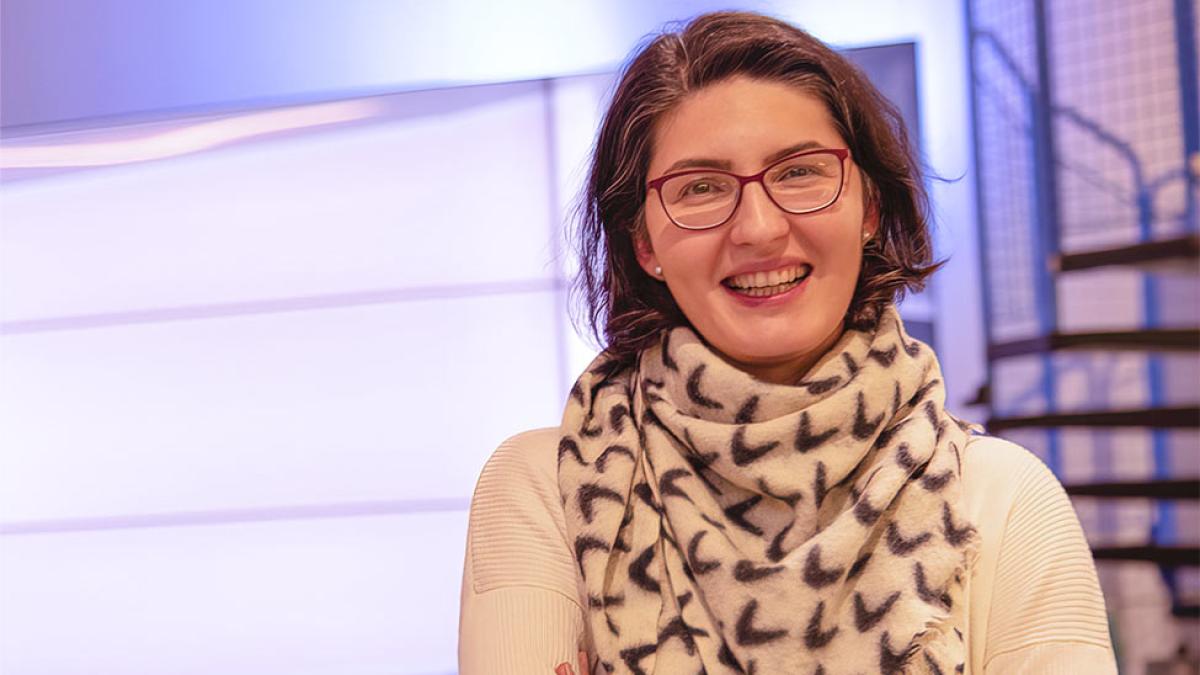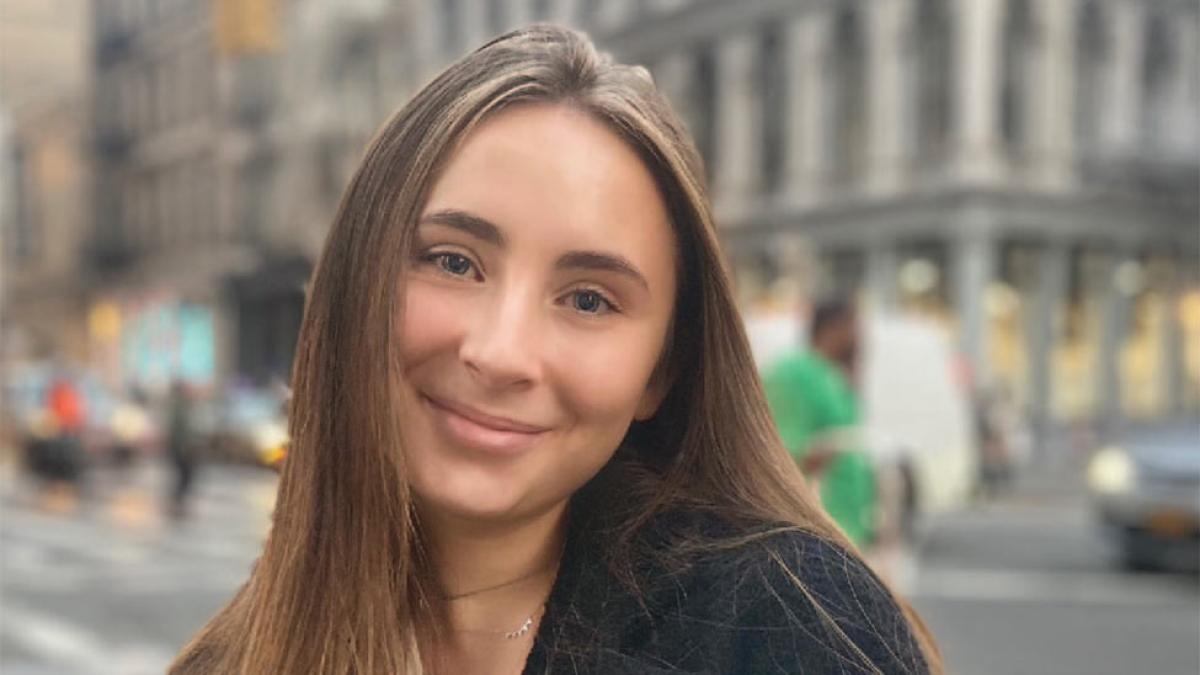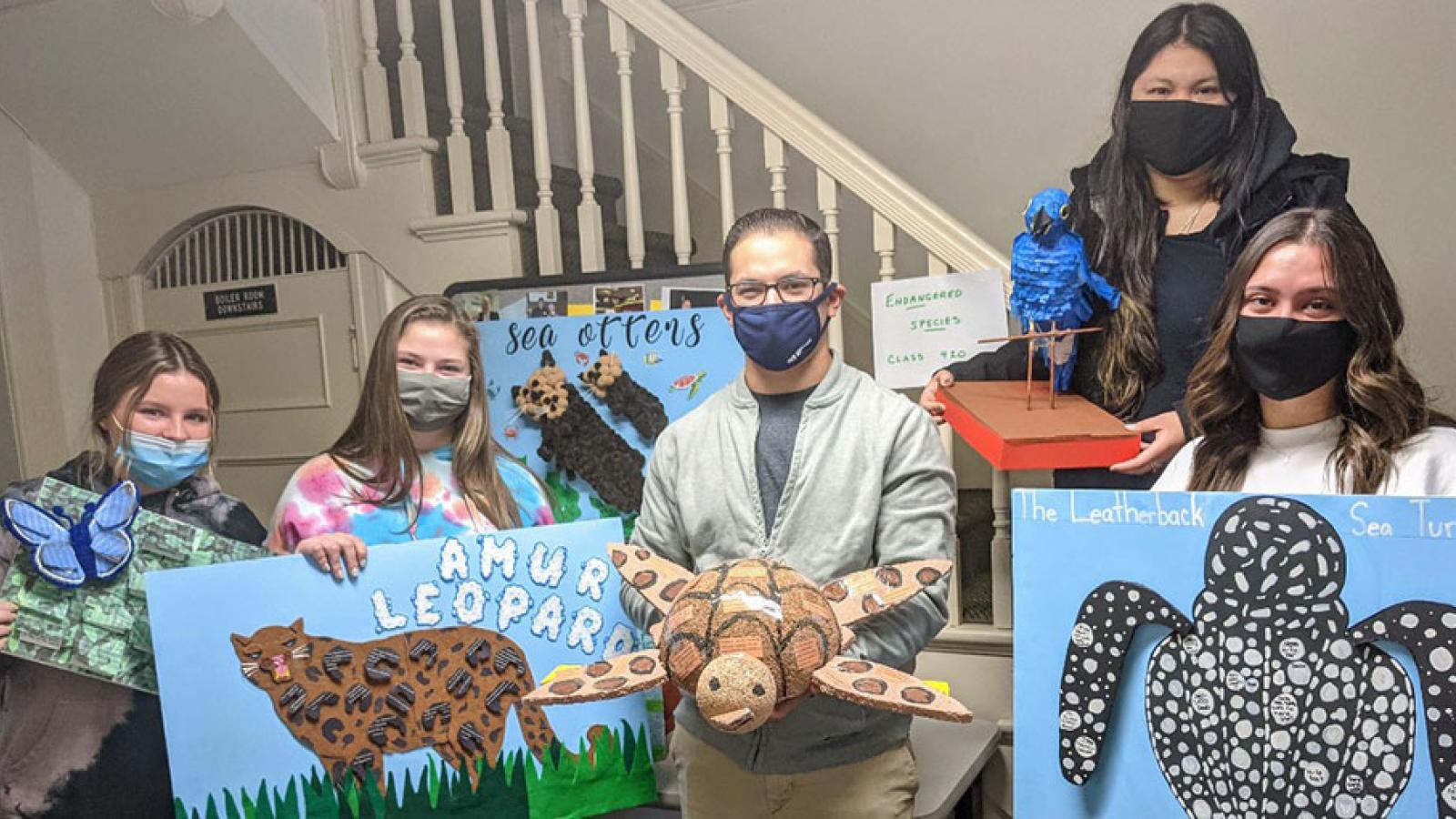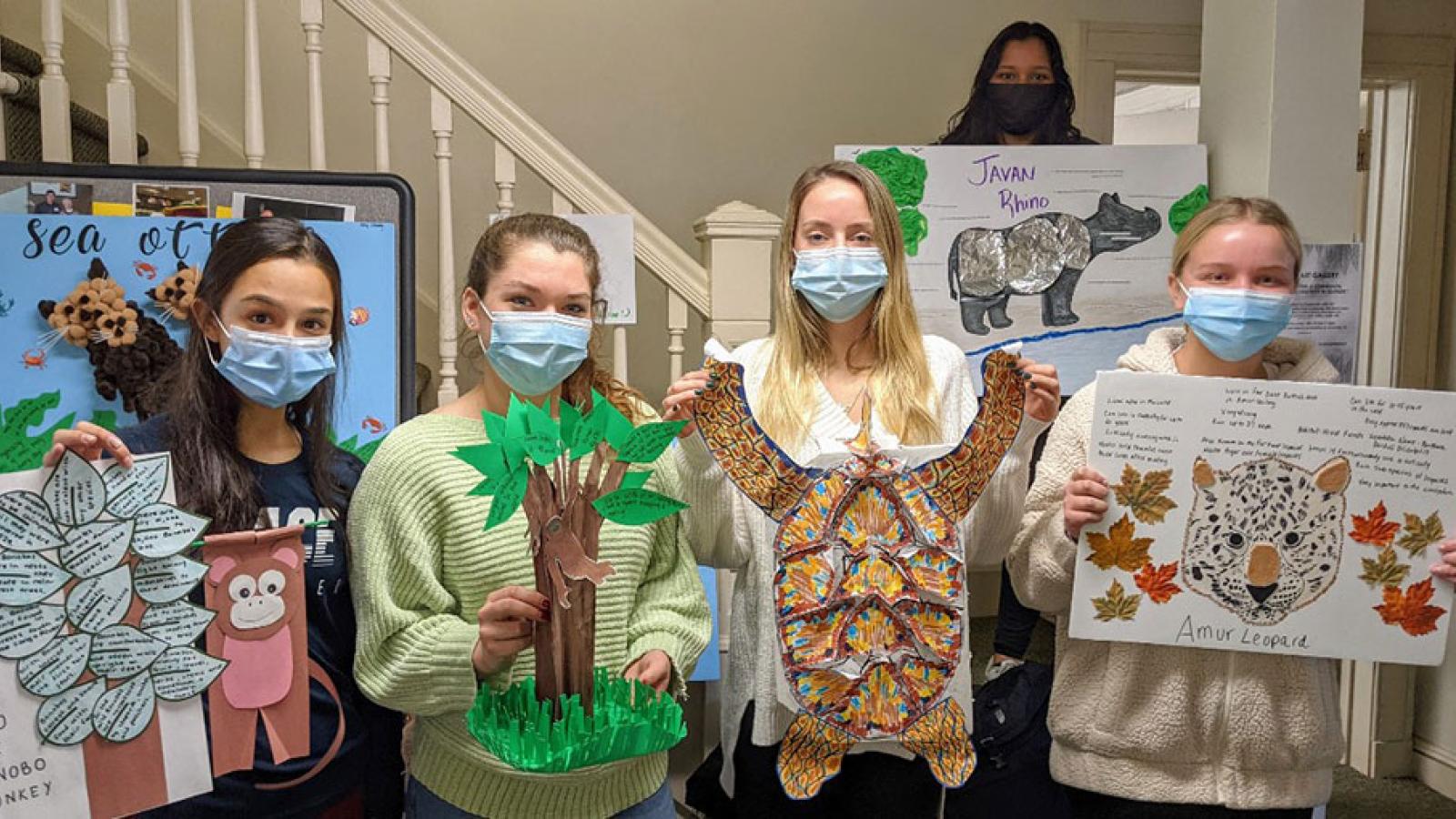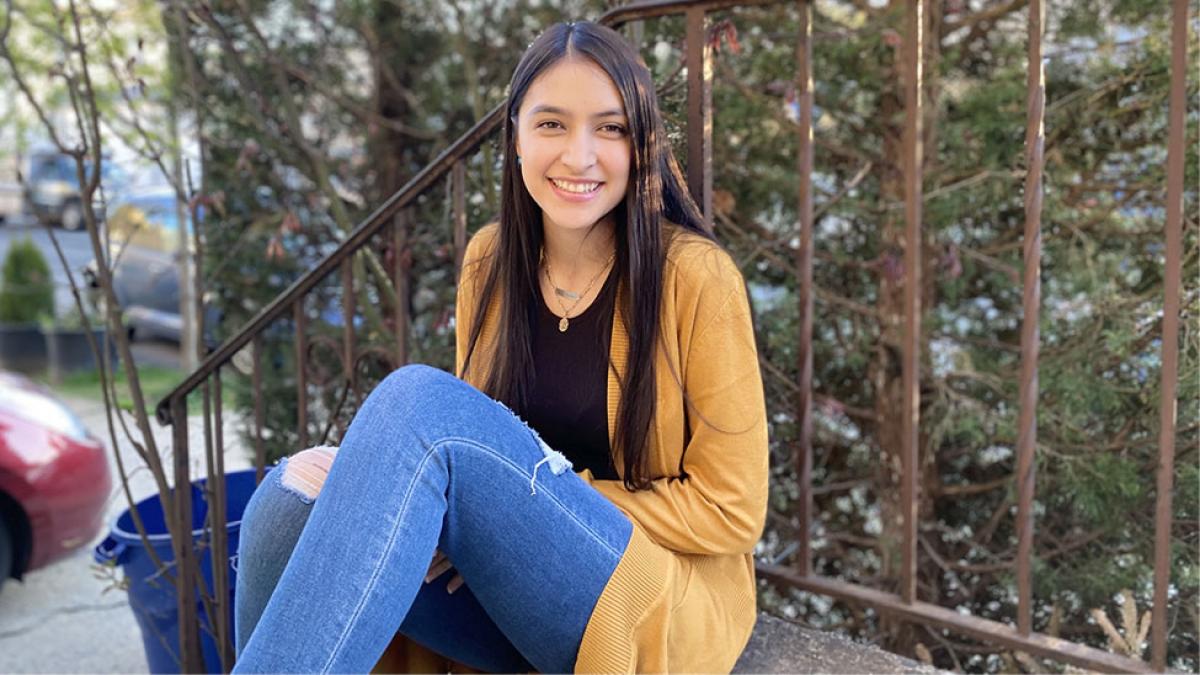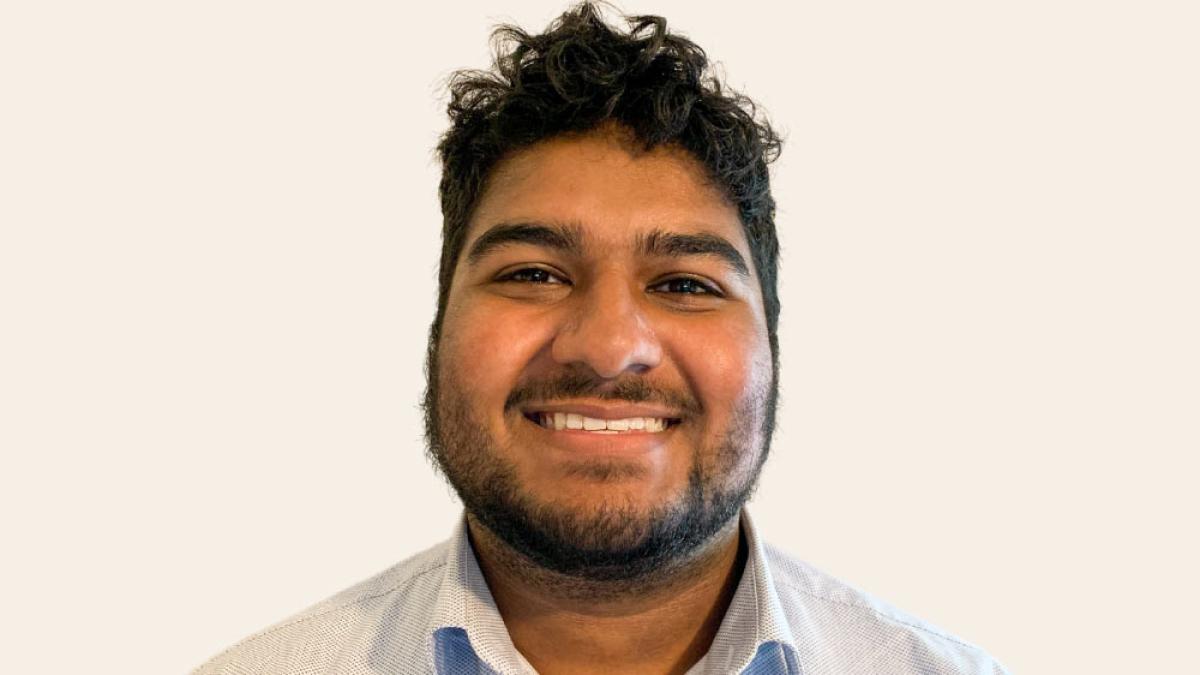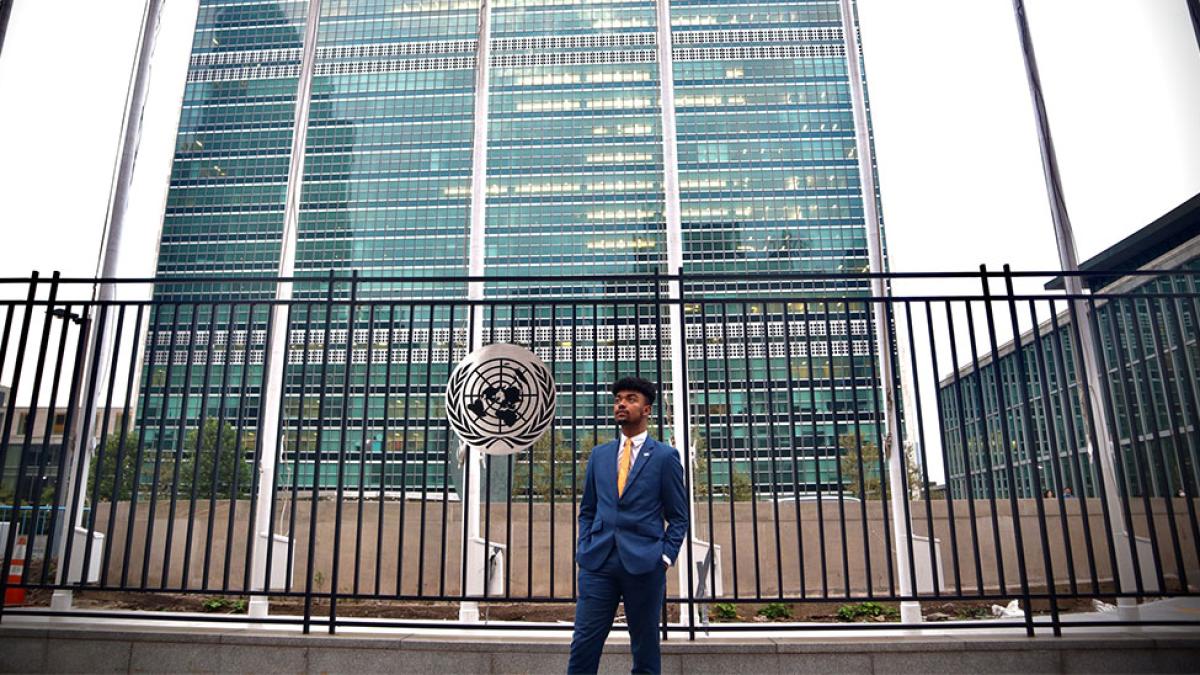At Pace, Aissatou Gningue has consistently challenged herself. She’s been a UN Millennium Fellow, Orientation leader, and is launching a new Entrepreneurship Club—in addition to being in a five-year MBA program and double majoring in accounting and political science with a minor in pre-law. Her philosophy: “What’s the point if it’s not challenging?”
Jennifer M. Holmes: Keeping Pace With a Changing Field
Most recently, Holmes was named the new executive director of Pace University’s Pace School of Performing Arts. In addition to her experience in the U.S. education system—which includes a B.A. from Vassar College, and an M.A. and Ph.D. from New York University—Holmes co-founded Global Empowerment Theatre, an international nonprofit theatre organization.
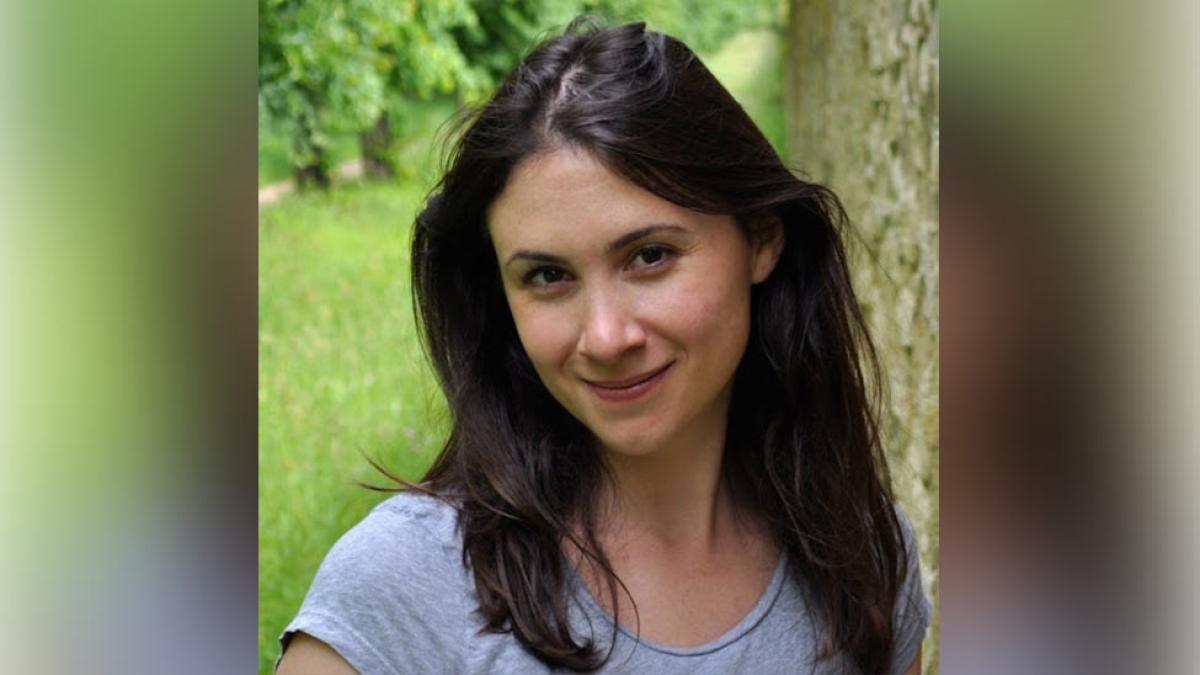
COVID-19 Updates for Spring 2022
We’re getting ready to kick off another successful semester, but first, there are a few important things you need to know as a member of the Pace Community.
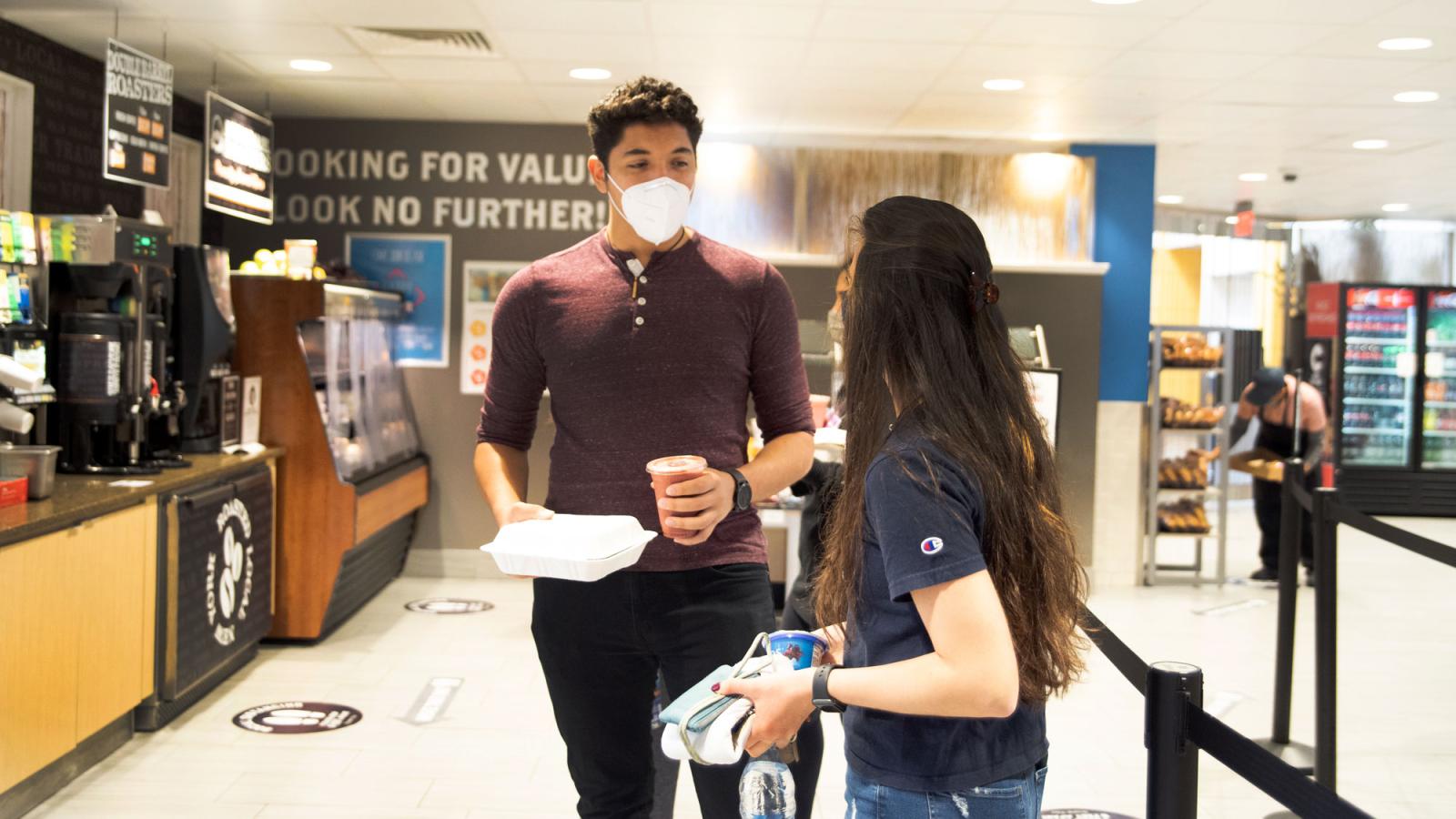
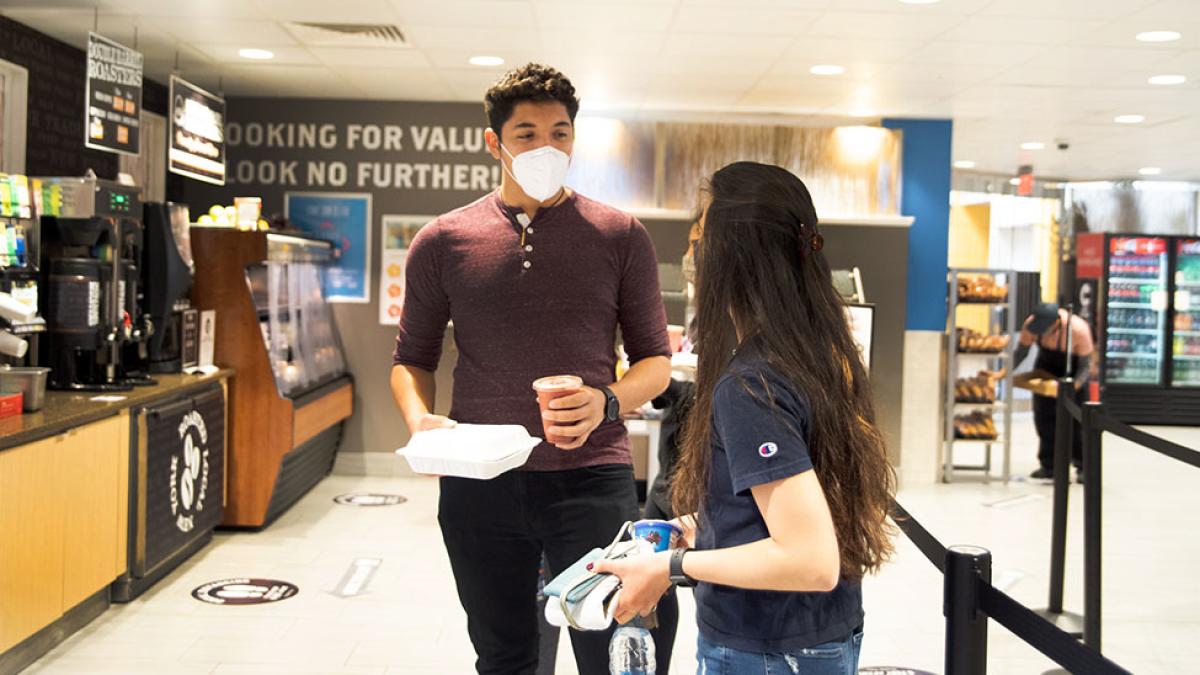
In a recent letter to the Pace Community, Executive Director of Emergency Management and Environmental Health and Safety Brian Anderson shared updated guidance regarding health and safety as we return to campus.
Here are the most important things you need to know about what to expect for the Spring 2022 semester:
Remote Learning
- Pace will begin the semester as planned on Monday, January 24. However, we will conduct the first two weeks of classes remotely, through Sunday, February 6.
- At Haub Law, the semester begins on January 18 and classes will begin meeting in-person on January 31.
- Some programs with necessary in-person components will continue in-person, and clinical experiences and other off-site activities may continue, depending on the procedures at the sponsoring institution. Your faculty or staff will contact you with information on whether your in-person activities will continue.
- Communication is key, so please continue to check your Pace email for communications from instructors, students, etc.
Masking
- Masks will continue to be required in all public indoor spaces on campus (e.g., classrooms, hallways, bathrooms, lounges, common areas, libraries) and on Pace transportation. Face coverings are strongly recommended outdoors when distance cannot be maintained.
- Due to the Omicron variant’s exceptional transmissibility, we recommend wearing high-quality, well-fitting masks, such as KN95s, or double-masking.
- Using a cloth mask over a disposable mask improves the fit and adds layers.
Booster Requirement
- As we have previously announced, anyone coming to a Pace campus will be required to be both vaccinated and boosted once they are eligible (subject to approved medical and religious exemptions).
- If someone is not eligible to receive a booster yet, they may still return to campus. Members of the Pace Community have 30 days after they become eligible to receive their vaccine booster and upload proof to the confidential Patient Portal.
- To continue to access campus, you must upload a record of your booster within 30 days of when you become eligible. You will not receive a confirmation email for loading your booster record; instead, we will randomly audit booster records to ensure compliance.
- We recognize there may be extenuating circumstances, including for international students who did not receive their initial vaccine in the United States, and we will issue extensions where appropriate. You may apply for an extension via the confidential Patient Portal beginning January 17.
- If you have already received an approved medical or religious exemption for Pace’s COVID-19 vaccine requirement, you do not need to apply for a separate exemption to the booster.
- If your healthcare provider has determined that you should defer the booster to a later date, you must apply for a temporary medical extension with supporting documentation from your healthcare provider. Complete the medical extension request found on our Immunization page and upload it to the confidential Patient Portal.
Testing
- We strongly encourage everyone returning to campus to take a COVID-19 test within 72 hours before returning to campus. If you test positive with a new infection, please complete your isolation period before coming to campus.
- If you test positive, you MAY NOT come to campus until you have completed a period of isolation, 5 days if asymptomatic, or 10 days if demonstrating symptoms. If a fever persists after 10 days, you should contact your healthcare provider or University Health Care for more guidance.
- People with a history of COVID-19 may continue to test positive on a PCR test within 90 days of their initial infection. It is recommended that you take a rapid antigen test to determine if you have a new, active infection.
- We will not require entry tests for residential students, but we continue to strongly encourage a negative test before arrival, and all students will be part of the community testing program.
- Community testing will begin the week of January 17. Once again, we are requiring weekly testing for certain communities (including those exempted from the vaccine requirement and certain high-risk groups) and a randomly selected sample of the population coming to campus. For the first two weeks of the semester, we will randomly test 20 percent of our on-campus community.
- As a reminder, any member of our community can participate in community testing if they wish.
Positive Tests Over Break
- If you had COVID-19 over winter break, please report your illness by January 17.
- Those who had COVID-19 will be excluded from our community testing program for 90 days after their illness.
Residence Halls and Campus Life
- The residence halls are open, and students may begin moving in on the weekend of January 22; however, returning to the residence halls during the two weeks of remote instruction is not required.
- An email was sent by Residential Life to all residential students so that they may schedule their move-in.
- Please note that at this time, our Visitor Policy from Fall 2021 will continue. No guests or visitors will be permitted in the residence halls. That means only students assigned to live in a space should be in that space. No other Pace students (residential or commuter) or outside guests are permitted.
- Dining halls will be open starting January 23, with full service. On the Haub Law Campus, dining service will be grab-and-go only until January 30 when full-service will resume. See the hours and menus.
- On-campus events will continue, but with 50 percent capacity limits. For the safety of everyone, no food will be served at in-person events. See what’s on the schedule.
- Pace’s libraries will be open for use starting Tuesday, January 18. You can see this semester’s hours of operation online.
- Pace’s main gym and fitness facilities will be open for use as they were during the Fall 2021 semester. The fitness centers inside our residence halls will be closed for the start of the spring semester. Additionally, on the Pleasantville Campus, there have been updates to Pace’s in-person spectator policy.
Isolation Protocols for Residential Students
Due to the limited availability of designated isolation spaces, we cannot guarantee that we will be able to place students who test positive for COVID-19 in a designated isolation space on campus.
- Students who test positive, whether at the start of the semester or at a later point, will be required to go home to complete their isolation if they live within 150 miles of campus and it is possible for them to do so. If it becomes necessary for you to isolate on campus, be aware that:
- We cannot guarantee where you will complete your isolation period. Students may be transported to another campus to complete their isolation, and may even need to isolate off campus, which will be coordinated by the University.
- Our isolation process separates you from others who are not COVID-19 positive, but it does NOT guarantee that you will complete your isolation period alone. Students who isolate in designated isolation spaces on campus should expect to share those spaces with other students who have tested positive.
Quarantine Protocols for Residential Students
In addition to isolation for those who test positive for COVID-19, some students, per the criteria below, will be required to quarantine. As with isolation, students who live within 150 miles of campus will be required to quarantine at home, if possible. Students who quarantine on campus may be required to quarantine in their own room, or in a designated space with other students who are required to quarantine.
- Students who are vaccinated and eligible for a booster but who have NOT received a booster, AND who are exposed to a positive case of COVID-19, will be required to quarantine for 5 days (from the date of exposure) and will need to test again after day 5.
- Students who are NOT vaccinated, AND who are exposed to a positive case of COVID-19, will be required to quarantine for 10 days (from the date of exposure), and will need to test after day 5.
- In cases where a student is fully vaccinated and boosted, and they are exposed to a positive case, they will NOT need to quarantine, but they should wear face covering in all settings and take a COVID-19 test between 5 and 7 days after exposure.
More from Pace
Professor and NYC Design Factory director Andreea Cotoranu is teaching students how to solve tomorrow’s problems. In partnership with major corporations and international collaborators, students have pitched ideas like noise-absorbing drones, massive-scale food cooling systems, and a modern take on teen furniture design.
Studying in New York City has always been a dream of Maud-Amelie’s. We talked to her about her time at Pace and how the relationships she has been building here have impacted her studies.
January 2022: A Message from President Krislov
President Krislov welcomes the Pace Community back to campus for the Spring 2022 semester, and discusses how Pace is continuing to move forward as we tackle Omicron and protect the health and safety of our students, faculty, and staff.
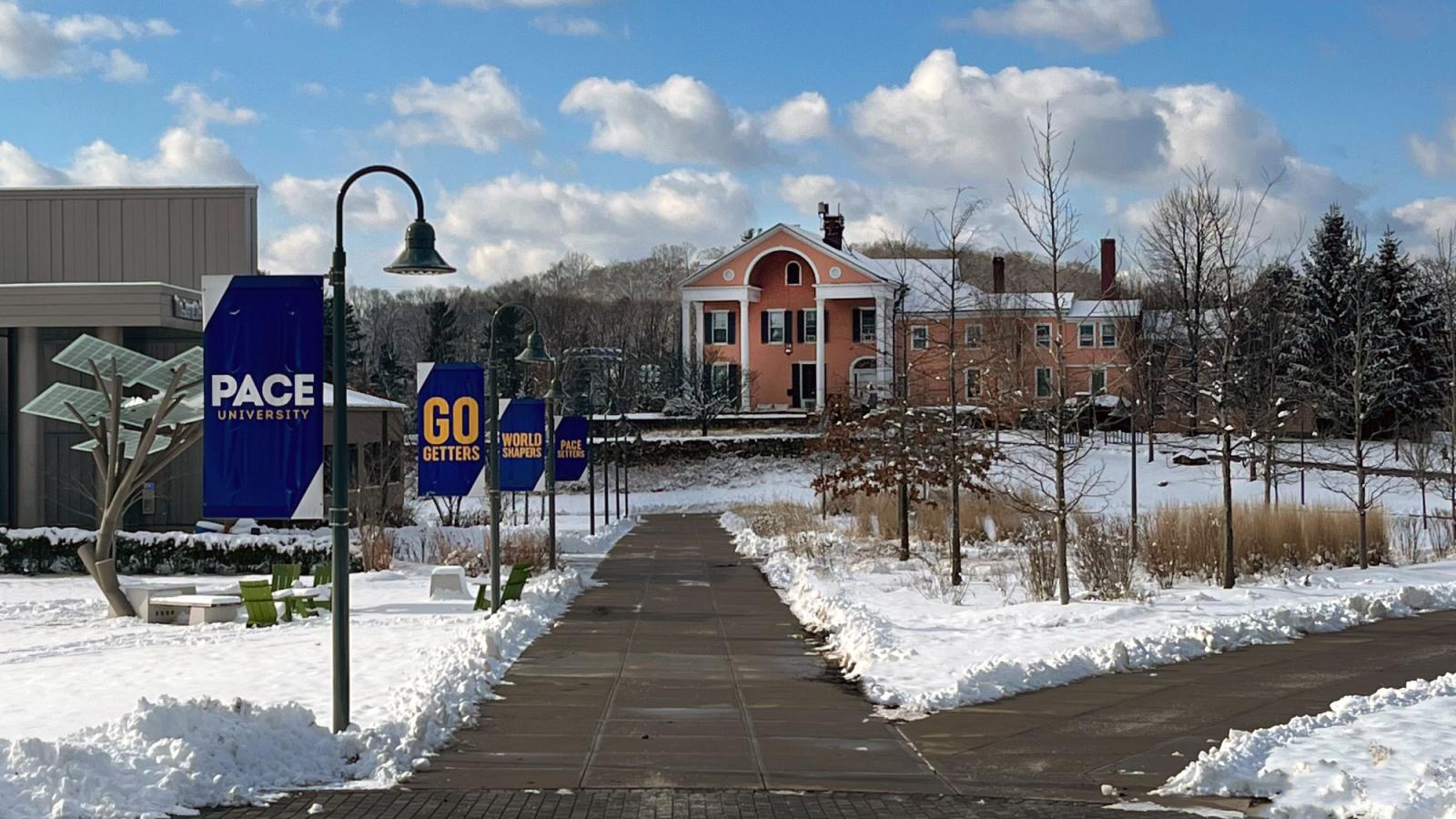
Welcome to the Spring 2022 semester, and welcome to Pace Now.
This new year isn’t kicking off as we’d all hoped. We’re saddened to see Omicron surging, and we’re disappointed to be returning in a time of heightened precautions.
But I know that we’re also charging forward at Pace University, and making positive changes for our students, our campuses, and our community. Our move to remote learning for the first two weeks of the semester will help us de-densify our campuses to keep people safe, even while allowing for some parts of normal college life to resume.
We’re welcoming a big new group of spring semester students—on top of the biggest incoming class in years that joined us in the fall.
We’re moving ahead on Pace Forward, our powerful new Strategic Plan, identifying opportunities for new and interdisciplinary investment that will serve our students, our community, and local employers. Pace Forward is guiding us as we embrace changes in the worlds of education and work so that we can continue delivering on our historic mission of Opportunitas.
Later today we’re holding a Community Conversation for staff and faculty, to keep everyone updated on everything going on at Pace, including our return-to-campus plans. And next month, on February 14, I’ll be delivering the annual State of the University address to the full Pace Community, going into detail about where Pace stands today and where we’re headed. This year I’ll speak from Pleasantville, livestreamed to all three campuses.
It makes me proud, humble, and grateful to be part of this community.
I spent our recent break exploring some of the many things there are to do in and around our campuses. Thanks to our ever-changing weather, I got to see the year’s first snowfall in Central Park one day, while I played tennis in Riverside Park on another. I visited the home of the great American painter Edward Hopper right across the river from our Westchester campuses in Nyack, and (with my vaccine card, booster, and proper distance!) I tried out new restaurants in Lower Manhattan.
As I reflected on the semester we ended, and have watched the new one taking shape, I remain so appreciative of the extraordinary effort so many here at Pace make every day, especially during these unpredictable times. It makes me proud, humble, and grateful to be part of this community.
I hope you were able to relax during the break, too, and I hope you’re as excited as I am to be back. We’re a strong and resilient community. And we’re going to have a great semester.
More from Pace
Calling all proposals for this year’s Institute for Teaching and Learning. Submit your interactive workshop or presentation that celebrates stories of resilience, diversity, and wellness through challenging times. Faculty should submit their proposals no later than February 27.
The Great Resignation. Remote Work. COVID-19 and the future of work. You’ve heard it all, but what does it mean? Talent Management expert Ibraiz Tarique, PhD, breaks down the ever-evolving relationship between employers and the people who truly make workplaces tick.
At Pace, Aissatou Gningue has consistently challenged herself. She’s been a UN Millennium Fellow, Orientation leader, and is launching a new Entrepreneurship Club—in addition to being in a five-year MBA program and double majoring in accounting and political science with a minor in pre-law. Her philosophy: “What’s the point if it’s not challenging?”
Bringing Science to the Classroom
Pace’s School of Education students are getting a first-hand lesson in integrating science into the elementary school classroom and setting children up for a lifetime of curiosity.

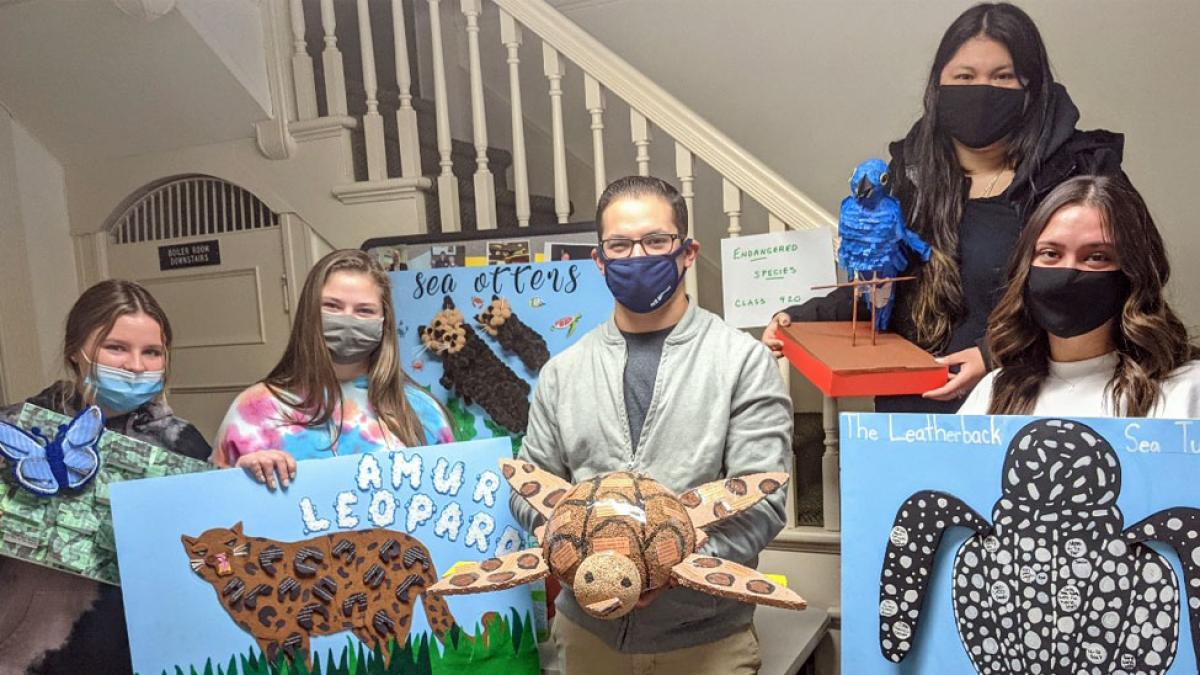
Science class.
For some of us, it may conjure up memories of vinegar-and-baking soda volcanoes or the oft-repeated and meme-worthy phrase: the mitochondria is the powerhouse of the cell.
But for the School of Education students in Linda Carlson’s Science Methods class, science class has taken on a whole new meaning. They spent last semester investigating methods and approaches for developing an integrated science curriculum for elementary school students.
“The purpose of the endangered species project was three-fold,” explains Professor Carlson. “It was a chance to learn about endangered species as a culminating unit of classwork, it was an opportunity for students to display their creativity, and lastly, it was multi-layered.”
“Science is a fantastic part of a child's education, and a science curriculum that develops these skills will create lifelong learners that are curious about the world around them.”
Students in Professor Carlson’s class chose an endangered animal to research, then produced a 3D project with important facts about their animal and wrote a persuasive letter from the point of view of their chosen animal. The project culminated with the development of a rubric that would be used to grade each component of this elementary-level science project.

“Students learn different skills in science, such as how to speak and write like a scientist. They also learn how to conduct research and experiments,” says SOE student Sara Birdsall ‘22, who focused her project on the Steller sea lion. “Science is a fantastic part of a child's education, and a science curriculum that develops these skills will create lifelong learners that are curious about the world around them.”
For SOE student Sasha Sackichand ‘23, the project was a way for her to explore her creative side and connect more deeply with the experiences she had as an elementary school student. For her project, she chose the pangolin and created a model with wire, modeling clay, and individually applied cardboard scales.
“After learning more about integrating a science curriculum into elementary school classrooms, I definitely do appreciate the science projects I completed in elementary school,” Sasha says. “I did not realize their significance at the time, but now I recognize how each project expanded my understanding of scientific inquiry.”
“Children are naturally curious about the world and want to learn more about their discoveries."
Introducing future teachers to the theories and methods used to learn, teach, and assess science and technology in the elementary school and show how investigative science can be used to answer questions and solve problems is critical for preparing future educators.
“Children are naturally curious about the world and want to learn more about their discoveries. Having a solid science curriculum fosters this curiosity by having them learn and make connections through scientific inquiry,” says Sasha. “The skills involved in the science curriculum can also be translated into more advanced abilities, such as conducting and writing about research.”
Through these innovative teaching methods, both future educators and elementary students alike will be able to continue to explore the sciences in an effective and impactful way. Science education will most certainly not end with the baking soda volcano.
Project Gallery
More from Pace
School of Education student Guadalupe Ceja ’23 hasn’t officially started teaching yet, but her own experiences in the classroom and her recent New York State scholarship win are putting her at the head of the class.
It’s no secret that wellness—physical, mental, spiritual—is a key component to success. At Pace, we’re taking a holistic approach to supporting wellness for all members of our community through the creation of a new role, the Chief Wellness Officer.
In the fall of his freshman year, Jonathan was sitting in his dormitory floor’s lounge in Maria's Tower when he was approached by students Jacob Selman and Ethan McKellar with an invitation to join their startup: F14 Entertainment. Two semesters and a slew of content later, Jonathan has become a sophomore with an enviable resume who is taking on his career with dedication and perseverance.
Analysis: No guarantee of new Maxwell trial after juror's revelations, experts say | Reuters
The Maxwell case would likely have a different outcome, said Pace University law professor Bennett Gershman, who has written about jury misconduct. He noted that the jury acquitted Maxwell on one of the counts, suggesting they were responsible in their deliberations. "It's something that should have been revealed, but doesn't seem to have compromised the verdict," he said.
Faculty Focus: Professor Josh Galperin
Professor Josh Galperin joined the faculty of the Elisabeth Haub School of Law at Pace University in 2021. He teaches Contracts, Environmental Skills, and Administrative Law. Professor Galperin also was in a band, likes to bake, and has great advice for law students – learn more in this candid student-led interview.
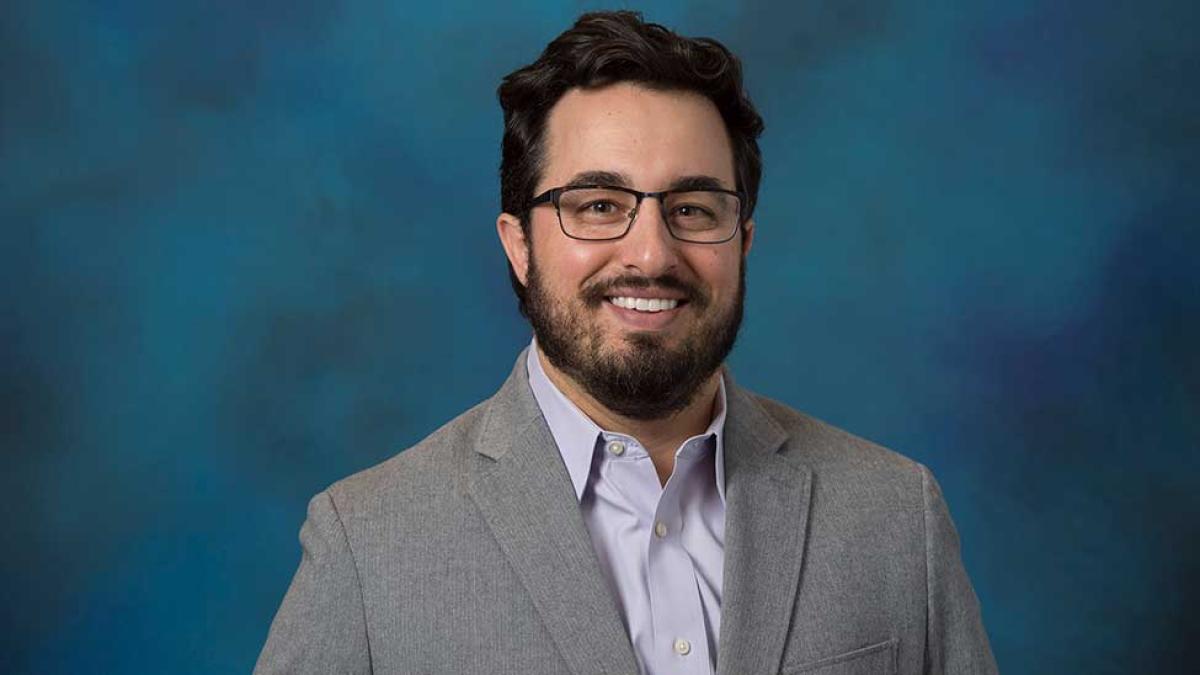
Professor Josh Galperin joined the faculty of the Elisabeth Haub School of Law at Pace University in 2021. He teaches Contracts, Environmental Skills, and Administrative Law. Professor Galperin also was in a band, likes to bake, and has great advice for law students – learn more in this candid student-led interview.
Can you tell me about your recent work?
I like my work to have two aspects: scholarship and practical projects. In my scholarship, I like to develop baseline arguments for why governments or policies should work in certain ways. My work on harmonic or administrative democracy falls mostly into the scholarship bucket. With this work, I’m exploring the idea that democracy is about more than just voting and elections. Democracy has a bunch of moving parts. My practical projects are typically government oriented. One example is with the Administrative Conference of the United States (ACUS). I’m looking into regulatory notice and the ways agencies give notice of what they’re doing. This relates to my scholarship because it can affect how people participate in democracy, whether that participation be through voting or engaging with rulemaking, for example. Another example of my practical work is the Farm Bill Law Enterprise, farmbilllaw.org, of which Professor Margot Pollans and I are founding members and Professor Jon Brown is also a member. Started in 2017, FBLE offers insights and proposals from legal scholars for the farm bill well in advance of the legislative debate. We try to put out reports to help congress ahead of time. This also relates to my administrative democracy work, as I am incorporating just, equitable, and inclusive governance in the farm bill context.
How did you become interested in the law?
My dad was a lawyer and he loved his job, but he was a litigator. The schools I went to instilled the importance of the governance process. My dad was non-stop work, so I knew I didn’t want that aspect of law and early on I was interested in policy. I either wanted to run for office or become a professor.
I see your scholarship covers many types of law. What led you to research in all these areas?
I don’t think it’s that diverse. My theme is the core issue of how we structure law so people can participate in the governance process.
Food and ag, Conservation, Human health and the Environment,
Land Use and the Environment – the theme can run through anything!
How has your Master’s degree from the Yale School of the Environment helped with your career in environmental law? Would you recommend the joint program to students?
Yes! It has helped me enormously.
The first reason I recommend it is totally superficial – a degree from Yale looks good on a resume. Although superficial, it’s real and it’s valuable, especially for students who want to leave the normal orbit of their school. For example, I went to Vermont Law School. It helped me get attention outside of Vermont. I moved to Tennessee after school.
The second reason is that law school is very individualistic; it is a good way to think like a lawyer. But that’s not how the world works in any field. It’s not how you will use the tools you learn in law school. The Yale MEM teaches students how to practice in any environmental discipline because everything there is both collaborative and interdisciplinary - that represents the real world more than law school alone.
Do you have any advice for students interested in environmental law?
Don’t feel like you have to over-commit to environmental classes or know everything there is to know about environmental law in law school. Focus on building the infrastructure for working while you're in law school. Find opportunities to do interdisciplinary work. Get involved in clubs. Do some non-legal work. Be curious. Ask why do people you disagree with have different opinions? Curiosity is about having lots of questions all the time. Also, don’t be afraid to be excited about things. The goal should be energy and excitement, not getting the grade or the job.
Don’t feel like you have to over-commit to environmental classes or know everything there is to know about environmental law in law school. Focus on building the infrastructure for working while you're in law school. Find opportunities to do interdisciplinary work. Get involved in clubs. Do some non-legal work. Be curious.
Can you tell me about a non-academic interest or hobby you have that you’d be willing to share?
Two things – baking and drumming.
I love cooking and baking. I am both enthusiastic about them and good at them. However, I’m patient, so I’m better at baking. It also allows me to have some space from my kids. I donated a baking lesson at Pitt, the last school I taught at, for a fundraiser. The winner and I made babka.
I was in a band, I was a drummer. I even played drums at my wedding for a song. I had a cameo for La Bomba. My groomsmen were in my band. I am hoping to be the Recess Appointments drummer.
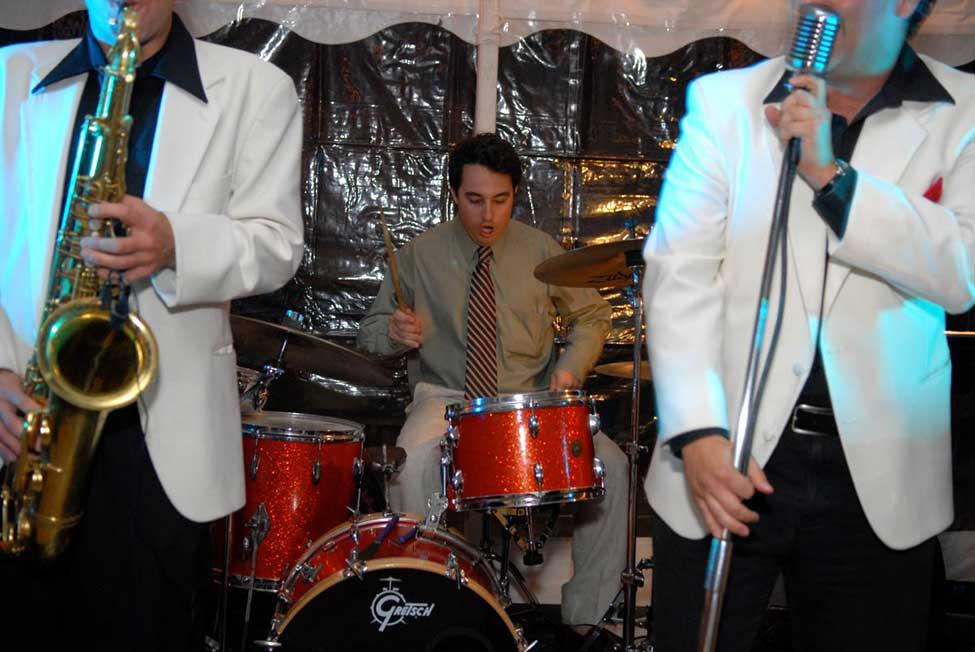
Gabriella Mickel, a 2023 JD Candidate at Haub Law, authored this faculty Q&A. Gabriella is a Land Use & Haub Scholar, the President of the Environmental Law Society, a Junior Associate on Pace Environmental Law Review, and on the E-Board for NLG, Lambda, and ACS. Outside of school, she owns three sports supplement stores and is the co-editor of the Law Student Corner section of the NYSBA EELS Journal.
Pace University navigates COVID-19, clinches national contest and looks to future
Despite the challenges of the pandemic, the school across from City Hall in Lower Manhattan won the 18th annual national College Fed Challenge and enrolled its largest incoming class of first-year students. Pace University finished out 2021 winning the 18th annual national College Fed Challenge. It was the school’s fifth win in seven years in the competition, which has students focus on the U.S. economy, monetary policy and the Federal Reserve System.
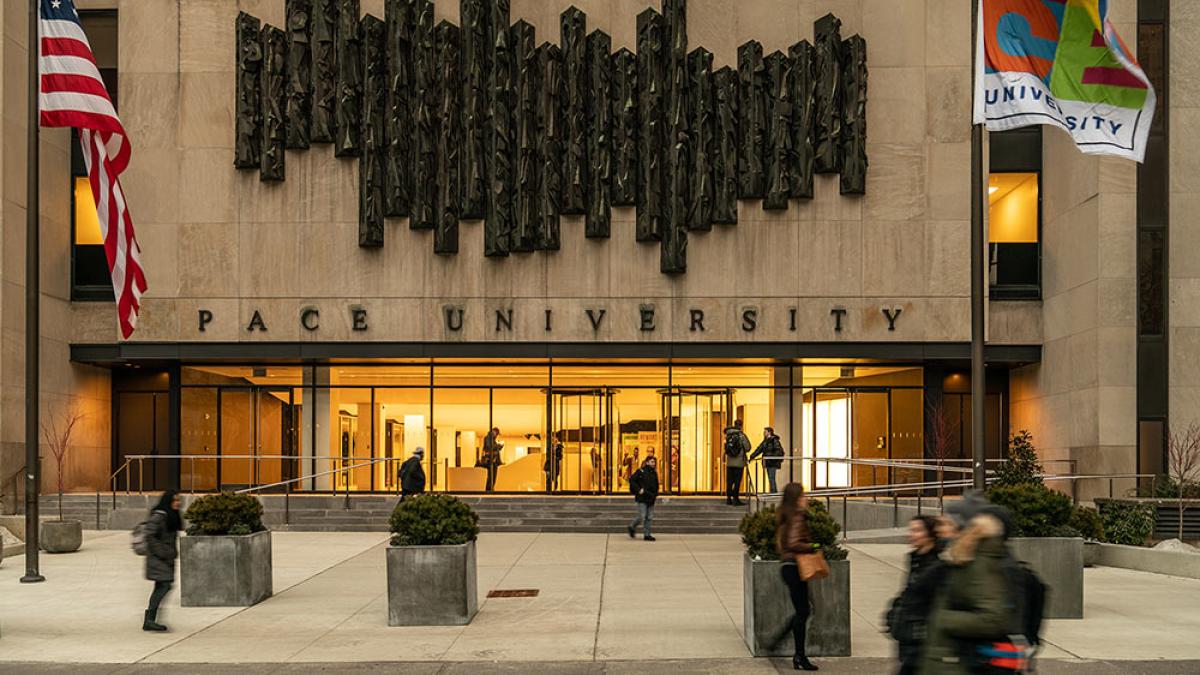
A Passion for Business and the Arts
Meet Jennifer Zaurov '22, a Lubin student pursuing a Dual MBA who founded the first Arts and Entertainment Management Graduate Club at Pace.
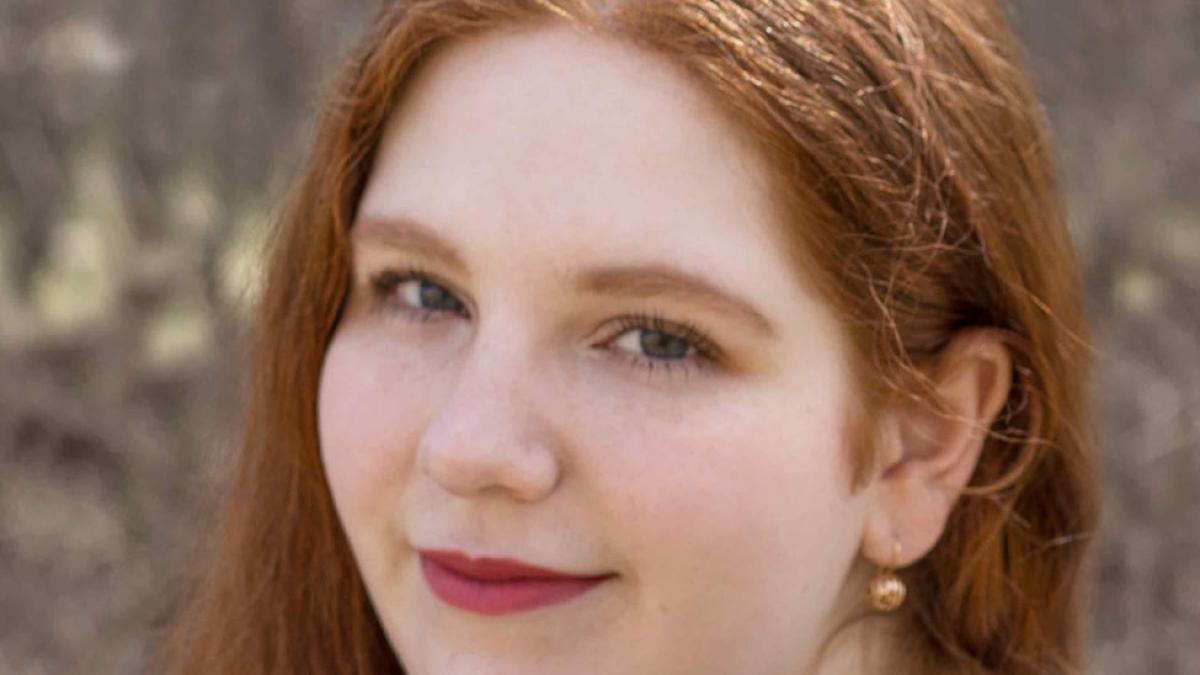
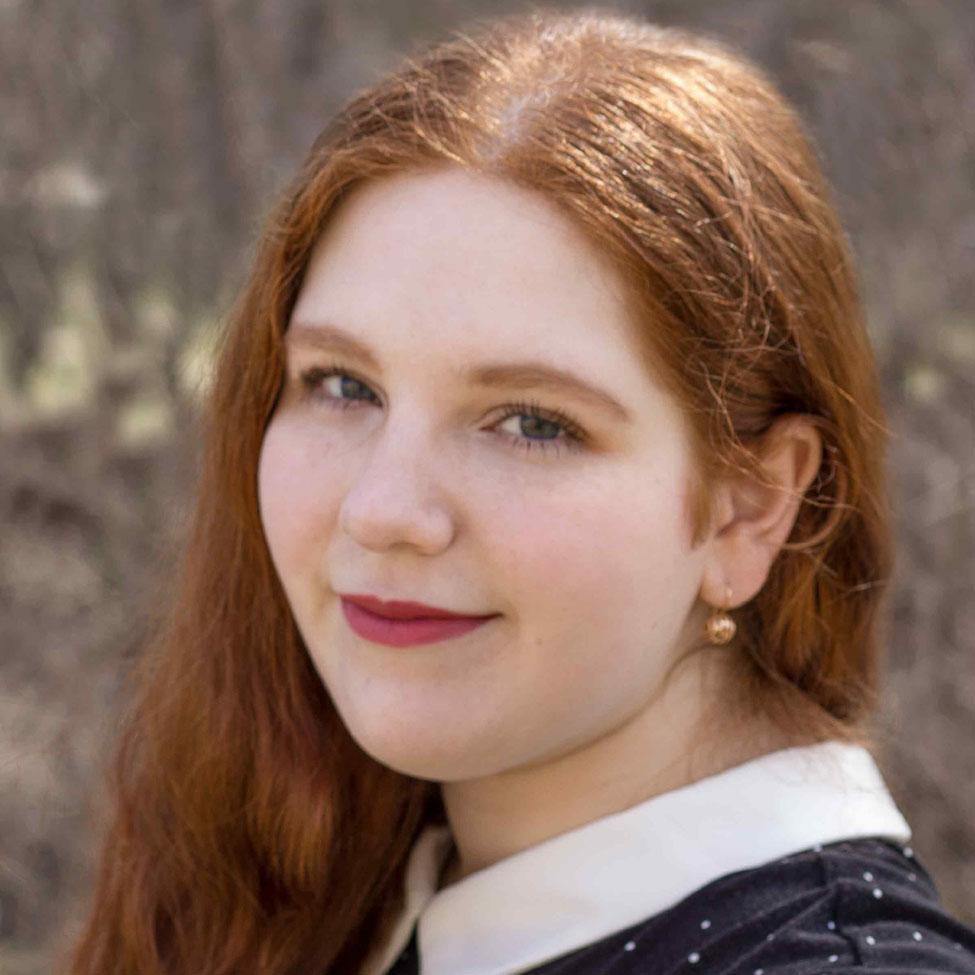
Jennifer Zaurov
Class of 2022
Dual MBA in Business / Marketing Management with a concentration in Entertainment
Member Of: Co-founder and President of TEAM Pace (The Entertainment and Arts Managers), Member of Lubin Women in Leadership, the Ad Club, and the Marketing Association (PUMA)
Professional Member: American Marketing Association, FUTURE NOW Media Leadership Alumna, One Day Immersion in Media, Entertainment, and Technology, and a T. Howard Foundation Final Talent Pool Member
Why did you choose Pace University and the Lubin School of Business?
I chose to continue my educational journey by attending Pace University's Lubin School of Business in order to make my dreams a reality. My passion lies within the arts and business fields; hence, Pace's Dual MBA program was the perfect fit for me in terms of challenging myself. Pace University's location was also a deciding factor for me because it's in the heart of FiDi (the Financial District).
I never thought that I would be pursuing a Dual MBA in my lifetime, so finding a diverse and amazing educational environment like Pace University solidified my decision and secured my place on campus.
You started the first Arts and Entertainment Management Graduate Club at Pace; tell us a bit about the motivation behind that idea and how it is enriching the student experience on campus.
Yes! TEAM Pace, which stands for The Entertainment and Arts Managers, was started by two other classmates (Shannon Giles and Amanda Larney) and me. We all are passionate about arts management.
Together, we wrote an entire living document of guidelines, essentially making a constitution for the club. We wanted to create a safe space for all graduate and undergraduate students who have an interest in the arts and business as a whole. One of the things I'm most proud of is TEAM Pace's commitment to DEIA initiatives. TEAM Pace is committed to diversity, inclusion, and tolerance across race, gender, age, religion, sexual orientation, identity, and personal experience.
TEAM Pace's goals include implementing holistic educational programs and fostering networking opportunities with respected alumni and industry professionals to better prepare students for their careers in entertainment and the arts.
Overall, the organization was started from a blank slate in Fall 2020. Three semesters later, we have held a myriad of virtual events such as a women's panel for International Women's Day, where we had an intimate Q+A with female entertainment professionals.
Follow us on Instagram for more information on future events: @lubinteampace
I never thought that I would be pursuing a Dual MBA in my lifetime, so finding a diverse and amazing educational environment like Pace University solidified my decision and secured my place on campus.
What is it like to be a business student in a dual program?
Very Busy. My schedule is super packed. I initially took four courses per semester and summer courses, but now I am taking three classes, which is still considered full-time study. I am also a Marketing Intern at Pace's Small Business Development Center and a member of many professional and student organizations. It is not uncommon for me to have five to six Zoom meetings per day.
That being said, and with my mental sanity at stake, I know that my hard work will pay off in the future.
You say that you are following your dreams; what are those dreams and what does the future look like for you?
That's a difficult question because I have so many goals and dreams. I have a bucket list of things I would like to do before I die and one of those things is moving to New York City. I was supposed to move to the city in Summer 2020, but the pandemic obviously changed so many people's plans.
I have taken three semesters of classes online and would really like to make connections in-person and on-campus. I am excited though because I'm finally moving to New York from my hometown of Toledo, Ohio, in 2022 (Go T-town!).
In regard to my professional dreams, my ultimate goal is to be the CEO of a media or entertainment company. I can picture it now – sitting in my office, on the top floor of a posh brownstone building, with important projects piled on my desk, and me positively reminiscing about the nonstop effort I put in to get to where I am.
I would also like to dip my feet into television and film development, producing, casting, and talent management.
After graduation, I hope to get a well-paying job at a tv/film studio, whether that be in marketing or management (I'm manifesting it!).
Do you have any advice for other Lubin students looking to get involved on campus?
Yes! Getting involved on campus is super easy. Just reach out to people via social media. TEAM Pace has received many DMs from Pace University students and we absolutely adore when people are interested in our club. There are so many amazing clubs and organizations on campus. Simply reaching out to people in class WhatsApp groups or asking your professors for recommendations could change your college experience. I don't know where I would be without campus organizations given that we were remote for so many semesters. I was able to make friends and share similar interests with people all over the nation from the comfort of my own home.
Also, if you don't see a club for something you enjoy doing, create one of your own! Chances are that other students will also want to join you in the venture.
What does #LubinLife mean to you?
To me, #LubinLife means pushing oneself out of one's comfort zone. As a Lubin student, I challenge myself daily and see my fellow classmates working on building better versions of themselves too. I see so much ambition among students and professors. It's invigorating and keeps me going. #LubinLife is reinforcing the principle of aiming high and following up with success.
Leading Through Service
At Pace, Aissatou Gningue has consistently challenged herself. She’s been a UN Millennium Fellow, Orientation leader, and is launching a new Entrepreneurship Club—in addition to being in a five-year MBA program and double majoring in accounting and political science with a minor in pre-law. Her philosophy: “What’s the point if it’s not challenging?”


“I never thought I’d have the opportunity to do something for a community on such a large scale or to meet so many people who were interested in the same things.” So says Aissatou Gningue, one of eight Pace students accepted into the UN Millennium Fellowship Program, a semester-long leadership development initiative designed to increase students’ social impact through a project aligned with the UN’s Sustainable Development Goals.
For her project, Aissatou focused on education. “I looked at the number of students who drop out of school before college, and the data broke my heart. These students don’t have opportunities or expect success. I saw this when I was in public school. I started sixth grade barely speaking English, but still, I wanted to do so much in life. I had so much passion. But I looked around and saw how other students in my classes didn’t have that or simply thought they couldn’t go beyond what they’d been given.”
“I never thought I’d have the opportunity to do something for a community on such a large scale or to meet so many people who were interested in the same things.”
Aissatou’s project was designed not only to help young students recognize the value of a college education but also to see it as an obtainable goal. “For the first part of my project, I talked to students to learn about their aspirations. I created a Google Form to keep track and sent them information about internships, scholarships, competitions, and other opportunities. I wanted to help them advance in their careers and also show them that college could be in their futures.”
“I can’t say how amazing it was not only to see myself grow but also to see how I was able to help younger students and to support other Fellows in furthering their work.”
Aissatou was one of two Millennium Fellows campus program directors. In addition to working on their own projects, she and her co-director held trainings for the other Fellows on goal setting, budgeting, and tracking progress, as well as other skills to help them succeed. “I can’t say how amazing it was not only to see myself grow but also to see how I was able to help younger students and to support other Fellows in furthering their work.”
“I can’t say how amazing it was not only to see myself grow but also to see how I was able to help younger students and to support other Fellows in furthering their work.”
And even though the project has officially ended, Aissatou has stayed in touch with some of the schools, and parents continue to reach out for help with things like completing online registration forms.
Aissatou is continuing to expand her leadership skills as the fundraising and social impact director for Pace’s American Marketing Association Club. And last year, she took on being an orientation leader and had to figure out—during a pandemic—how to make a virtual event as engaging as a live-in-person experience. “That taught me a lot—primarily, that you can never stop learning. You have to stay open to it, or you’ll miss out on new opportunities.”
Her latest venture is recruiting other students to create a new Entrepreneurship Club. “A lot of Pace students have or aspire to have their own businesses and don’t know how to do it. So, I decided to create a resource.” Founding a club is a different undertaking from stepping into a project that already has a blueprint. As part of that process, Aissatou learned even more about herself and what it takes to be a leader. “I had to ask others to go into this journey with me. I have to keep track of it all and make sure that everyone feels welcome and that every voice is heard. And sometimes, I have to be that annoying person who asks if they’ve done what they were supposed to do. But mostly, I get to encourage others to speak and get their voices out there. I’m seeing all the ways I can help people around me grow. And that’s how I’m learning and growing during my college years—beyond the curriculum.”
More from Pace
Jeremiah Williams ‘23 has always been a talker. From his high school debate team to addressing the United Nations First Committee, Jeremiah recognizes the power of speaking up when it counts.
BFA in Art student Christian Solar ’23 is taking a deeper look at the decay of technology and the intersection of when the past becomes the present in his new exhibit Digital Distorted, on view until October 30 at the Pace University Art Gallery.
School of Education student Guadalupe Ceja ’23 hasn’t officially started teaching yet, but her own experiences in the classroom and her recent New York State scholarship win are putting her at the head of the class.
Maxwell’s attorney and family vow to appeal guilty verdict but face obstacles
A “harmless error” is not enough to overturn a conviction, Bennett Gershman, a professor at Pace Law School, told Reuters.
